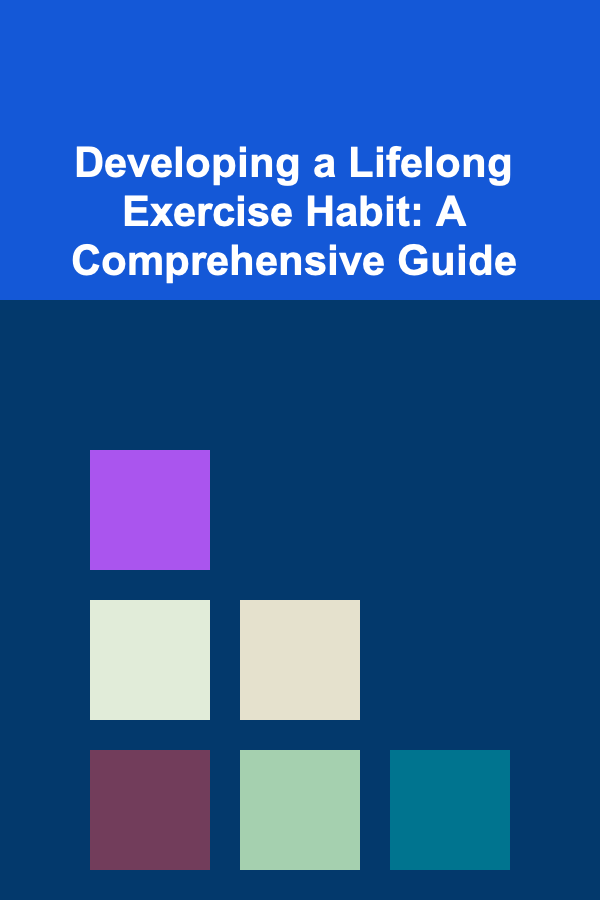
10 Tips for Using Your Personal Development Planner to Improve Relationships
ebook include PDF & Audio bundle (Micro Guide)
$12.99$7.99
Limited Time Offer! Order within the next:
Not available at this time

Personal development is a lifelong journey, and the relationships we cultivate along the way play a significant role in shaping our growth. Whether personal, familial, romantic, or professional, relationships are at the core of our emotional and social well-being. A personal development planner is a powerful tool that can help you focus on enhancing the quality of your relationships, nurturing deeper connections, and fostering mutual respect, understanding, and support.
While the use of a personal development planner is often associated with achieving personal goals, the potential for improving relationships is just as important. By intentionally incorporating relationship-focused strategies into your planner, you can create an environment for growth, communication, and emotional health.
In this article, we'll explore 10 practical and actionable tips for using your personal development planner to improve your relationships.
Set Relationship-Focused Goals
The first step in using your personal development planner to improve relationships is to define clear, relationship-focused goals. These goals should be specific, measurable, attainable, relevant, and time-bound (SMART goals). Rather than general goals like "improve my relationships," break them down into concrete actions.
For example, instead of setting a vague goal such as "be a better partner," focus on specific aspects of your relationship, like "schedule weekly date nights" or "increase communication and share more openly." These goals could apply to romantic relationships, friendships, family dynamics, or even professional networks.
Actionable Steps:
- Write down one or two relationship goals you want to work on each week.
- Break down your relationship goals into smaller, actionable steps.
- Track your progress regularly and adjust goals as necessary.
Develop Empathy and Emotional Awareness
Empathy is the foundation of all meaningful relationships. The ability to understand and share the feelings of another person fosters trust, compassion, and deeper connections. In your planner, dedicate time to reflect on your emotional awareness and practice empathy in your interactions.
You can add a daily or weekly prompt in your planner to help you consider others' emotions. Journaling about how others might feel in different situations can be a great way to strengthen your ability to empathize.
Actionable Steps:
- Write down one experience each day where you practice empathy.
- Reflect on how your actions or words impacted the emotions of others.
- Consider how you might approach similar situations in the future with more empathy.
Focus on Active Listening
Active listening is a powerful skill that shows others that you value and respect their thoughts and feelings. It's about listening with intention, asking clarifying questions, and providing thoughtful responses. Active listening can be a game-changer in improving communication within relationships.
Incorporate prompts in your planner to focus on practicing active listening. Challenge yourself to listen intently during conversations without interrupting, offering advice, or thinking about your response before the other person finishes speaking.
Actionable Steps:
- Write a reflection in your planner after each conversation about how well you practiced active listening.
- Set weekly reminders to practice active listening in both personal and professional relationships.
- Track how well active listening helps you understand the people in your life better.
Build Trust with Consistent Actions
Trust is the cornerstone of any strong relationship. It is built through consistent, reliable actions, and over time, trust can be nurtured and strengthened. Use your planner to set small goals that foster trust in your relationships. These goals could include showing up on time, keeping promises, being open and transparent, and following through on commitments.
Make it a point to track your behaviors and reflect on how your actions contribute to building or eroding trust. If you've made mistakes, note what you can do differently next time to rebuild trust.
Actionable Steps:
- Set goals in your planner related to consistent behavior, such as honoring commitments and being punctual.
- Reflect on your actions weekly to see if you're building trust or losing it.
- Adjust your behavior based on your reflections to become a more trustworthy person.
Prioritize Self-Care for Healthier Relationships
The better you take care of yourself, the better you can show up for the people in your life. Personal development planners often include self-care aspects like physical, emotional, and mental well-being. If you're feeling tired, stressed, or overwhelmed, it can be difficult to be present and positive in your relationships.
Schedule self-care activities in your planner to ensure you're maintaining your own well-being. Taking time for yourself not only enhances your quality of life but also ensures that you can be your best self in relationships.
Actionable Steps:
- Plan time for self-care, such as exercising, reading, or practicing mindfulness.
- Reflect on how taking care of yourself improves your interactions with others.
- Use your planner to track self-care activities and adjust them to meet your needs.
Strengthen Communication Skills
Clear, respectful communication is essential in every relationship. Misunderstandings and lack of communication can lead to unnecessary conflict. In your personal development planner, dedicate time to improving your communication skills. This can include active listening, assertiveness, and expressing yourself honestly and respectfully.
You can track your communication patterns and review conversations to assess if your communication is effective or if improvements are needed.
Actionable Steps:
- Set goals to improve communication, such as learning to be more assertive or reducing misunderstandings.
- Practice expressing your thoughts clearly and listen to how others respond.
- Write a weekly reflection on your communication experiences and any challenges you faced.
Create Space for Appreciation and Gratitude
Gratitude can transform relationships. People feel more connected and valued when they're regularly appreciated. In your planner, set aside time each week to express gratitude to the people in your life, whether it's through verbal affirmation, written notes, or small acts of kindness.
Consider keeping a gratitude log where you write down the ways you are grateful for the people you interact with. This can help foster positive feelings in your relationships and encourage you to look for the good in others.
Actionable Steps:
- Set weekly goals to express appreciation to loved ones or colleagues.
- Write in your planner about the positive aspects of each person you encounter.
- Challenge yourself to show gratitude in small, thoughtful ways every day.
Practice Conflict Resolution
Conflict is inevitable in any relationship, but how you handle it can either strengthen or damage the bond. Conflict resolution skills are vital for maintaining harmony and understanding. In your planner, set goals to improve your conflict resolution techniques. This might include remaining calm in heated moments, focusing on the issue rather than personal attacks, and working toward a mutually beneficial solution.
Use your planner to review any recent conflicts you've experienced, reflecting on what went well and where you can improve.
Actionable Steps:
- Set goals to practice conflict resolution in your relationships.
- Reflect in your planner about any recent conflicts and how they were resolved.
- Consider how you can handle future conflicts more constructively.
Balance Your Time and Energy
Healthy relationships require a balance of time and energy. Overcommitting to work, social obligations, or personal projects can leave little room for the people who matter most. In your planner, prioritize time for the relationships you value most, whether that's with family, friends, or a romantic partner.
Use your planner to organize your schedule, ensuring you allocate time for quality interactions. A good balance between work and personal life will allow you to nurture relationships and avoid neglecting those who are important to you.
Actionable Steps:
- Schedule time in your planner for relationship-building activities.
- Set boundaries with work or other commitments to ensure quality time with loved ones.
- Reflect on how well you're balancing your time between personal and professional obligations.
Review and Reflect on Your Progress
Improvement comes with consistent effort and regular reflection. Use your personal development planner not just for goal-setting but also for reviewing your progress and learning from your experiences. Regular reflection helps you assess where you've succeeded and where you can improve. Set aside time each month to review your relationship goals and progress.
Ask yourself questions such as: "How have my relationships improved this month?" or "What behaviors have I changed to make my relationships stronger?"
Actionable Steps:
- Dedicate a section of your planner to monthly relationship reflections.
- Track the progress of your relationship goals and make adjustments as needed.
- Celebrate small wins in your relationships and continue to set new goals for improvement.
Conclusion
Improving relationships is an ongoing process that requires self-awareness, dedication, and a willingness to grow. By incorporating relationship-focused goals and practices into your personal development planner, you can create lasting positive changes in the way you connect with others. The 10 tips outlined in this article offer practical strategies for enhancing empathy, communication, trust, and conflict resolution---all of which are essential elements for building and maintaining strong, healthy relationships.
Through regular reflection, goal-setting, and consistent action, you can use your planner as a powerful tool to foster deeper, more meaningful connections with the people around you. Ultimately, the more effort you put into your personal growth, the more fulfilling your relationships will become.

How to Make Spring Cleaning in Housekeeping a Family Activity
Read More
How to Make the Most of Your Small Balcony
Read More
How to Use Mirrors to Enhance Your Entryway Space
Read More
How To Choose the Best Mockumentary TV Shows
Read More
Developing a Lifelong Exercise Habit: A Comprehensive Guide
Read More
How to Incorporate Biophilic Design in Urban Environments
Read MoreOther Products

How to Make Spring Cleaning in Housekeeping a Family Activity
Read More
How to Make the Most of Your Small Balcony
Read More
How to Use Mirrors to Enhance Your Entryway Space
Read More
How To Choose the Best Mockumentary TV Shows
Read More
Developing a Lifelong Exercise Habit: A Comprehensive Guide
Read More